Have Digital ID and Tracking Systems Already Been Implemented in the Name of Public Health?
Public-Private Partnerships and Your Health Records
The emergence of the COVID-19 pandemic appears to have opened doors for pharmaceutical companies and various global public-private organizations to introduce inventions and concepts that might not have gained approval or acceptance under normal circumstances. The pandemic appeared to facilitate the emergence of concepts, potentials, and opportunities that swept over the world like a tsunami, propelling us towards the Fourth Industrial Revolution and a new form of humanity as envisioned by Klaus Schwab years before the seemingly orchestrated pandemic.
Michael Shellenberger, Alex Gutentag, and Matt Taibbi, as revealed in the Twitter Files exposés, played a crucial role in highlighting how governments, public-private stakeholders, and major tech companies employed censorship in an effort seemingly aiming to manipulate and control certain recent narratives. Matt Taibbi and Michael Shellenberger provided testimony during a House Judiciary subcommittee hearing that focused on what Republicans claim to be the politicization of the FBI and Justice Department, as well as attacks on American civil liberties. This took place on Capitol Hill in Washington on Thursday, March 9, 2023.
Recently, Michael Shellenberger, Alex Gutentag, and Matt Taibbi unveiled new bombshell information known as the CTIL Files #1. These files stem from evidence provided by a whistleblower who has surfaced with a substantial collection of documents, comparable to or surpassing the scale and significance of the Twitter Files and Facebook Files. The documents shed light on the operations of an "anti-disinformation" entity called the Cyber Threat Intelligence League, or CTIL, initially established as a volunteer initiative by data scientists and defense and intelligence professionals. Over time, however, their tactics seem to have been integrated into various official projects, including those affiliated with the Department of Homeland Security (DHS).
The disclosed CTIL #1 documents, encompassing strategy papers, training materials, presentations, and internal communications, uncover the development of an extensive censorship framework in 2019. Led by former UK defense researcher Sara-Jayne "SJ" Terp, United States (US) and United Kingdom (UK) military and intelligence contractors, co-heading the Cyber Threat Intelligence League (CTIL), collaborated with the Cybersecurity and Infrastructure Security Agency (CISA) in spring 2020.
The roots of the Censorship Industrial Complex, however, trace back to 2018. Internal CTIL Slack messages reveal close collaboration between Terp, her associates, and officials from the Department of Homeland Security (DHS) and Facebook in the censorship process. Terp and her associates, including members of the MisinfoSec Working Group like DiResta, crafted a strategy for censorship, influence, and anti-disinformation known as Adversarial Misinformation and Influence Tactics and Techniques (AMITT).
They adapted this strategy by leveraging a cybersecurity framework originally developed by MITRE, a major defense and intelligence contractor with an annual budget ranging from $1 to $2 billion in government funding. Subsequently, Terp utilized AMITT to create the DISARM framework, which was then employed by the World Health Organization to counter anti-vaccination campaigns across Europe. A significant aspect of Terp's contributions through CTIL, MisinfoSec, and AMITT involved introducing the concept of "cognitive security" into the realms of cybersecurity and information security. The CTIL framework and the public-private model laid the groundwork for censorship measures implemented by both the US and UK in 2020 and 2021.
Among the AMITT/DISARM public-private partnerships, MITRE emerged as a notable company on the list. MITRE is a non-profit entity managing Federally Funded Research and Development Centers engaged in global public-private partnerships with locations within the United States and internationally.
MITRE’s primary focus involves collaborative (public-private) efforts with U.S. government agencies to tackle intricate issues spanning national defense, cybersecurity, healthcare, and other diverse domains. MITRE wants professionals to join their team to “amplify your impact for public good.” The term amplifiers was found within the United Nations Foundation COVID-19 Solidarity Fund playbook discussed in a substack that can be found here. Within the playbook, the United Nations (UN) public-private stakeholders discussed how amplifiers were utilized to further the agenda of the UN, so the term used on the MITRE site is definitely interesting.
Over its history, MITRE Corp has overseen federally funded research and development centers for U.S. government agencies, particularly in the fields of healthcare, homeland security, and cybersecurity. Roughly half of MITRE's workforce operates within the MITRE Labs unit, aiming to expand the organization's impact across federally funded research and development centers, collaborating with academia and industry partners. Forbes notes that MITRE manages some of the U.S. government's confidential science and tech labs. The company has undertaken diverse projects, including developing a prototype tool for homeland security to hack into smartwatches, fitness trackers, and home thermometers.
Additionally, MITRE Corp collaborates with major tech companies in initiatives such as running the COVID-19 Healthcare Coalition and providing substantial consultation for the Centers for Disease Control and Prevention (CDC) in formulating comprehensive plans to address the COVID-19 pandemic. The company's extensive history of surveillance is highlighted in Forbes, which details a project in partnership with the government to capture fingerprints from photos posted on social media.
An FBI-contracted "social media image fingerprinting project" in 2015 is among the disclosed endeavors, revealing the depth of MITRE's involvement in surveillance efforts.
The concept of public-private partnerships and the collective efforts of various organizations aiming for an improved and more secure world may not initially appear problematic. However, it is crucial to scrutinize both the term "public-private partnerships" and the objectives pursued by these international collaborations, like MITRE.
In the article “What is the “Global Public-Private Partnership?”, Iain Davis adeptly delineates the nature of public-private partnerships and articulates the reasons why there is a need for heightened awareness and vigilance regarding these collaborations.
The Global Public-Private Partnership (GPPP) is a global network of stakeholder capitalists (think the Club of Rome, World Health Organization, World Economic Forum, and UN) and their associates, encompassing entities such as global corporations, “philanthropic” foundations, policy think-tanks, governments, non-governmental organizations, academic institutions, global charities, labor unions, and selected thought leaders.
This coalition, wielding significant influence, exercises control over global finance and the world's economy. Through global governance, the GPPP shapes worldwide, national, and local policies, promoting them through mainstream media corporations that are also GPPP partners. Policy initiatives are devised by think-tanks, adopted by governments (also GPPP partners), and transformed into hard policy and legislation. In the existing framework of Westphalian national sovereignty, a government of one nation is restricted from enacting legislation or laws in another. Nevertheless, through the mechanism of global governance, the GPPP generates policy initiatives at the global level, subsequently influencing and permeating through to individuals in every nation.

The GPPP's international consensus-setting establishes an authoritative framework, enabling stakeholders to collaborate and ensure the implementation and enforcement of desired policies, constituting an "international rules-based system." This structure enables the GPPP to exert control over multiple nations simultaneously without the need for legislative measures, making legal challenges to decisions by senior GPPP partners challenging.

The Global Public-Private Partnership (GPPP) will have jurisdiction over every aspect—governments, businesses, communities, and individuals. According to the World Economic Forum (WEF), the priority is the planet, not individuals. The core ethos of the GPPP is centralized control over the entire planet, its resources, and all its inhabitants, as explicitly stated in the introduction to the WEF's Great Reset initiative. The COVID-19 pandemic appears to have facilitated the realization of this undertaking under the guise of public health.
It is significant to highlight that in 2021 MITRE collaborated with major technology players including Microsoft, Oracle (more on this company later) and other “public-private partnerships” in a collaboration with diverse healthcare companies to implement the Vaccination Credential Initiative (VCI). Cerner (which Oracle acquired in 2022) and Epic are very interesting partnerships with this group as they are some of the main electronic medical records systems that have been implemented in US healthcare systems.
Oracle, also known as the Oracle Corporation, was originally named Software Development Laboratories (SDL). It was co-founded by Larry Ellison, Bob Miner , and Ed Oates in 1977. Oracle’s first customer was the Central Intelligence Agency, and the company name SDL was changed seemingly to align with the CIA Project Oracle. Oracle is believed to have consistently held a significant role in the national security sector, and Larry Ellison, its founder, is thought to have accumulated his wealth by contributing to the development of the tools used in our contemporary surveillance state. Ellison amassed so much wealth that according to the Daily Mail, he was able to purchase almost 98% of Lanai, an island 8 miles away from Maui, in 2012. According to the article, he intends to use his island purchase as an experiment in “sustainability.”

The U.S. government has also provided Oracle Cloud with an authority to operate (ATO) for top-secret workloads. This authorization enables defense and intelligence organizations to take advantage of the latest commercial innovations, implementing cloud capabilities with enhanced performance and more cost-effective solutions across various classification levels.
In 2020, the Central Intelligence Agency (CIA) granted its much-anticipated Commercial Cloud Enterprise (C2E) contract to five companies: Amazon Web Services, Microsoft, Google, Oracle, and IBM. Within the C2E contract framework, these firms will vie for individual task orders released by the CIA on its behalf and on behalf of the 16 other agencies constituting the intelligence community. The anticipated contract value was not disclosed to Nextgov by the CIA, but procurement documents released by the agency in 2019 suggested it could potentially reach "tens of billions" of dollars over the next fifteen years.
In 2022, Oracle was confronted with a privacy class action lawsuit in the United States. The lawsuit was filed in the Northern District of California as a 66-page complaint, the lawsuit contends that the tech giant's "worldwide surveillance machine" has compiled extensive profiles on approximately five billion individuals. The allegations accuse Oracle, along with its adtech and advertising subsidiaries, of infringing upon the privacy rights of the majority of the global population.
The VCI website is hosted by the Commons Project Foundation, a key supporter of the initiative.
This Commons Project Foundation collaborates with the WEF to oversee the Common Trust Network, which shares three objectives similar to those of VCI. As outlined on the WEF website, the network aims to (1) empower individuals by offering digital access to their health information; (2) simplify individuals' understanding and adherence to the requirements of each destination; and (3) guarantee that only verifiable lab results and vaccination records from reliable sources are presented for cross-border travel and commerce.
What is a Smart Health Card?
Those public-private partners present it in such a positive light, don't they?
People can utilize verifiable "credentials" for medical reasons, showcasing their health status to safely resume activities such as work, school, travel, and daily life? Hold on, doesn't that ring a bell?
Rest assured, these public-private partners are stepping in with digital health records that can be displayed on smartphones or printed on paper, featuring QR codes to indicate your adherence to their directives, enabling you to "return to normal" or resume your daily life. It almost feels like all of this was preplanned doesn’t it?
The World Health Organization (WHO) is coordinating the collaboration of these groups to create a "trust framework," facilitating countries in verifying the authenticity of vaccine credentials, as stated by Brian Anderson, Chief Digital Health Physician at MITRE and a co-founder of the Vaccination Credential Initiative (VCI). This initiative aims to streamline international travel by making the proof of vaccination easily shareable and verifiable. The VCI, responsible for SMART Health Cards, using W3C Verifiable Credential and HL7 FHIR standards, has emerged as the predominant standard for digital vaccine credentials in the U.S., with numerous states incorporating or embracing this technology, addressing the varied standards for proof of inoculation that cause confusion for both travelers and officials.
Interesting that this all started back in 2009.
In the article, “Silicon Valley and WEF-Backed Foundation Announce Global Initiative for COVID-19 Vaccine Records”, Whitney Webb discusses Josh C. Mandel presentation on the SMART Health Cards that emphasized that digital identity plays a crucial role in the digital vaccination-record initiative. Currently, SMART Health Cards are anticipated to encompass a person's full name, gender, birth date, mobile phone number, and email address, along with vaccination details. However, it is probable that additional personal information will be necessary as the initiative progresses, as indicated by VCI, which notes that these identifiers serve as a foundational starting point.
Key backers of the Vaccination Credential Initiative (VCI), such as Microsoft, Salesforce, Cerner, Epic, the Mayo Clinic, and MITRE Corporation, are closely associated with Google and are also prominent members of the MITRE-run COVID-19 Healthcare Coalition. This coalition includes CIA-related entities like In-Q-Tel and Palantir, aligning with the ambitions of companies like Google seeking access to extensive American health data under the pretext of combating COVID-19. As Whitney Webb discussed in her article, there's a notable concern that Verily, and by extension Google, initiated Project Baseline to collect "actionable genetic information" with a focus on "population health" since 2017.
During the COVID-19 response, Project Baseline has played a crucial role in Verily's testing efforts, prompting apprehensions about the potential acquisition of Americans' DNA data through these activities. While Verily hasn't directly addressed this concern, Google's extensive involvement in accumulating genomic data is worth noting. Google Genomics, established in 2013, aimed to store and analyze DNA data on Google Cloud servers and has since evolved into Cloud Life Sciences, developing AI algorithms for genome sequencing and identifying mutations inherited from parents.
Google also maintains close connections with major U.S. DNA testing companies like Ancestry.com, which shares data with a discreet Google subsidiary focused on developing therapies for extended lifespans. Furthermore, Google co-founder Sergey Brin's wife, Anne Wojcicki, is the co-founder and CEO of the DNA testing company 23andMe, and Wojcicki is also the sister of Susan Wojcicki, CEO of Google-owned YouTube. Again with the web of public-private partnerships.
Also within her article, Whitney Webb elaborates on the fact that just days before VCI's public announcement, Microsoft Healthcare and Google's Verily joined forces with MIT and Harvard's Broad Institute, aiming to share cloud data and AI technologies with a global network exceeding 168,000 health and life sciences partners, expediting the Terra platform. Terra, originally developed by the Broad Institute and Verily, is an open data ecosystem focused on biomedical research, encompassing cancer genomics, population genetics, and viral genomics. It incorporates genetic information, medical imaging, biometric signals, and electronic health records.
Google, in collaboration with the Pentagon, is utilizing data analysis to predictively diagnose diseases such as cancer and COVID-19. Concurrently, VCI supporter Salesforce is aligned with this objective, contributing to the creation of COVID 360—a comprehensive Coronavirus treatment solution hosted on Salesforce Health Cloud, developed by Deloitte's Israel branch and the Israeli intelligence-linked AI firm Diagnostic Robotics. COVID 360 employs Diagnostic Robotics' clinical predictions platform to identify individuals near a potential positive coronavirus case, allowing government agencies or caretakers to mandate COVID-19 testing and/or treatment based on a risk profile generated by COVID 360. Both Diagnostic Robotics and Salesforce are members of the MITRE-run COVID-19 Healthcare Coalition.
Whitney Webb also found that Salesforce founder, chair, and CEO Marc Benioff previously served as a vice president at Oracle, that’s right, the Oracle that originated as a spin-off from a CIA project sharing the same name, with its top executives having close ties to the departing Trump administration and Israel’s government. Although Benioff's connection to a CIA-linked company like Oracle is noteworthy, his close associations with the World Economic Forum (WEF) also warrant attention. Benioff not only sits on the WEF’s board of trustees but also serves as the inaugural chair of the forum’s Centre for the Fourth Industrial Revolution, a concept defined by WEF founder Klaus Schwab as the convergence of humans' physical, digital, and biological identities. Additionally, Benioff is the owner and co-chair of Time magazine, which recently dedicated an entire issue to promoting the Fourth Industrial Revolution and the WEF-backed Great Reset.

However, we have legal frameworks in place to protect against such actions, don't we? Indeed, we do. Yet, this is where public-private partnerships, including those involving the CIA, appear to navigate around these legal constraints, seemingly avoiding any violations. The CIA's 1947 charter explicitly prohibits engagement in domestic spying. However, if the CIA were to enlist a contractor to carry out the surveillance on their behalf, does it exempt them from legal consequences? Multiple investigative reports provide clear evidence that such activities are indeed occurring. Furthermore, these endeavors appear to align with the globalist initiatives of the UN, WHO, and WEF. In light of this, one may question the genuine purpose of the CIA and who their allegiance is to.
What about the Health Insurance Portability and Accountability Act of 1996 (HIPAA), a federal law mandating the establishment of national standards to safeguard sensitive patient health information, ensuring it is not disclosed without the patient's consent or awareness
Is this the point at which public-private partnerships, such as contracts involving MITRE, covertly operate to circumvent and nullify the authority of our national, federal, and state laws like HIPAA? Are the public-private contractors mentioned in the aforementioned article collaborating with entities or their business associates tasked with ensuring the confidentiality of our private health records, as mandated by law, without obtaining our consent or knowledge?
Is MITRE, in collaboration with the vast list of public-private organizations like CIA, UN, WEF, and WHO, genuinely dedicated to safeguarding our health and well-being? Can they be relied upon to handle our HIPAA-protected private health information records with trust and integrity? When CERNER and EPIC, major electronic healthcare records systems partner with these entities, what is being done with our healthcare data?
Why are U.S. government agencies engaging with these worldwide public-private partnerships? Why are private health records of citizens seemingly being uploaded into cloud storage systems without clear consent or awareness of the underlying activities? What is the genuine purpose behind the mass-scale collection of genetic and health record data?
Founded in 2012, the Health FFRDC (Federally Funded Research and Development Center) is dedicated to addressing intricate, cross-disciplinary issues impacting health and overall well-being. MITRE, as the operator of the Health FFRDC, functions as an impartial advisor to various entities including Centers for Medicaid and Medicare Service (CMS), the Centers for Disease Control and Prevention, Food and Drug Administration, National Institutes of Health, Health Resources and Services Administration, Administration for Children and Families, and all the operating divisions within Health and Human Services (HHS). Additionally, MITRE collaborates with other government organizations with health-related missions. On October 24, 2023, MITRE announced a new five-year contract with the Centers for Medicare & Medicaid Services (CMS) to operate the CMS Alliance to Modernize Healthcare, a federally funded research and development center, more commonly known as the Health FFRDC.
Do you recall the Vaccination Credential Initiative (VCI) mentioned earlier? In addition to MITRE and Oracle, the VCI partnerships also highlighted other noteworthy collaborations between the public and private sectors. Among these collaborations is the CARIN Alliance, which deserves attention due to its partnership with HHS, facilitating access to HIPAA-protected information of U.S. citizens through CMS. The CARIN Alliance was founded in Washington, D.C. on September 12, 2016. They have formed alliances with commendable private enterprises such as Pfizer, who prioritize health and well-being (insert sarcasm).
In 2017, CARIN's primary focus was on overcoming challenges related to consumer-directed exchange involving third parties, which previously lacked access to private HIPAA data. The alliance advocated for granting these third parties access to such information, framing it as a trust framework for consumer-directed exchange. This collaborative effort, involving both public and private entities, aims to develop policy recommendations to guide HHS, the Office of Civil Rights (OCR), FTC, and other regulatory entities in supporting the implementation of CARIN Alliance strategies within the private sector.
Additionally, the alliance promotes the adoption of digital IDs, arguing that traditional methods like presenting a driver's license or completing demographic forms during intake pose identity-related challenges. In summary, the CARIN Alliance is actively promoting the concept of implementing digital identification methods and facilitating third-party access to previously safeguarded patient information. It’s great that HHS and CMS are working with public-private partnerships like this, right?
Another noteworthy public-private partnership noted on the VCI website includes a company called AWS. What exactly is AWS? It just so happens to be Amazon Web Services (AWS). AWS is another public-private partnership who wants to help oversee your healthcare.
AWS is not only found on the WEF roster, they are also a part of the HHS public-private partnership. I am starting to detect a pattern here.
AWS, the third-party cloud service provided by Amazon, claims to be a comprehensive solution for your HHS and HIPAA-protected information needs. Count me out when it comes to enrolling in this repository for health and demographic identifiers Digital ID! (Absolutely not!)
Why are these public-private partnerships allowed to have access to what should be private and protected data? A notable issue arises from these unelected global public-private partnerships and their initiatives, which are unfolding with minimal public awareness. These entities appear to have infiltrated various aspects of our global existence, aiming for comprehensive control over individuals and everything else.
According to Dan KaganKristi KungAndrew Serwin, in their article, “American Hospital Association sues HHS over HIPAA online tracking technology bulleting,” on November 3, 2023, the American Hospital Association (AHA), along with the Texas Hospital Association, Texas Health Resources, and United Regional Health Care System, filed a lawsuit against the Department of Health and Human Services (HHS) Secretary Xavier Becerra and HHS’s Office for Civil Rights (OCR) Director Melanie Fontes Rainer.
The lawsuit revolves around OCR’s December 2022 Bulletin addressing the use of online tracking technologies by HIPAA Covered Entities and Business Associates. According to the Plaintiffs, OCR allegedly unlawfully broadened the definition of individually identifiable health information (IIHI) through the Bulletin to include data like internet protocol (IP) addresses obtained from unauthenticated public-facing webpages. This legal action follows the AHA's previous expressions of concern about the guidance's scope in May 2023, where they urged OCR to suspend or amend the Bulletin, seek public comment, and requested Congress to encourage OCR to retract the guidance. Since the release of the Bulletin, OCR has not indicated any intention to revoke or modify it. Not only has OCR disclosed its initiation of nationwide investigations into the use of online tracking technologies, but it has also sent warning letters to healthcare providers. In July 2023, OCR and the FTC collaboratively informed 130 hospital systems and telehealth providers that they could be utilizing online tracking technologies on their websites or mobile apps, potentially collecting health information in contravention of HIPAA. These letters were made public by the agencies in September.
It is crucial that we still have political leaders and legislators dedicated to American interests rather than globalist agendas. Discoveries related to digital IDs and the tracking of citizens under the guise of public health using trusted healthcare and records systems are disconcerting. Urgent action is necessary, and substantial changes are crucial without delay.










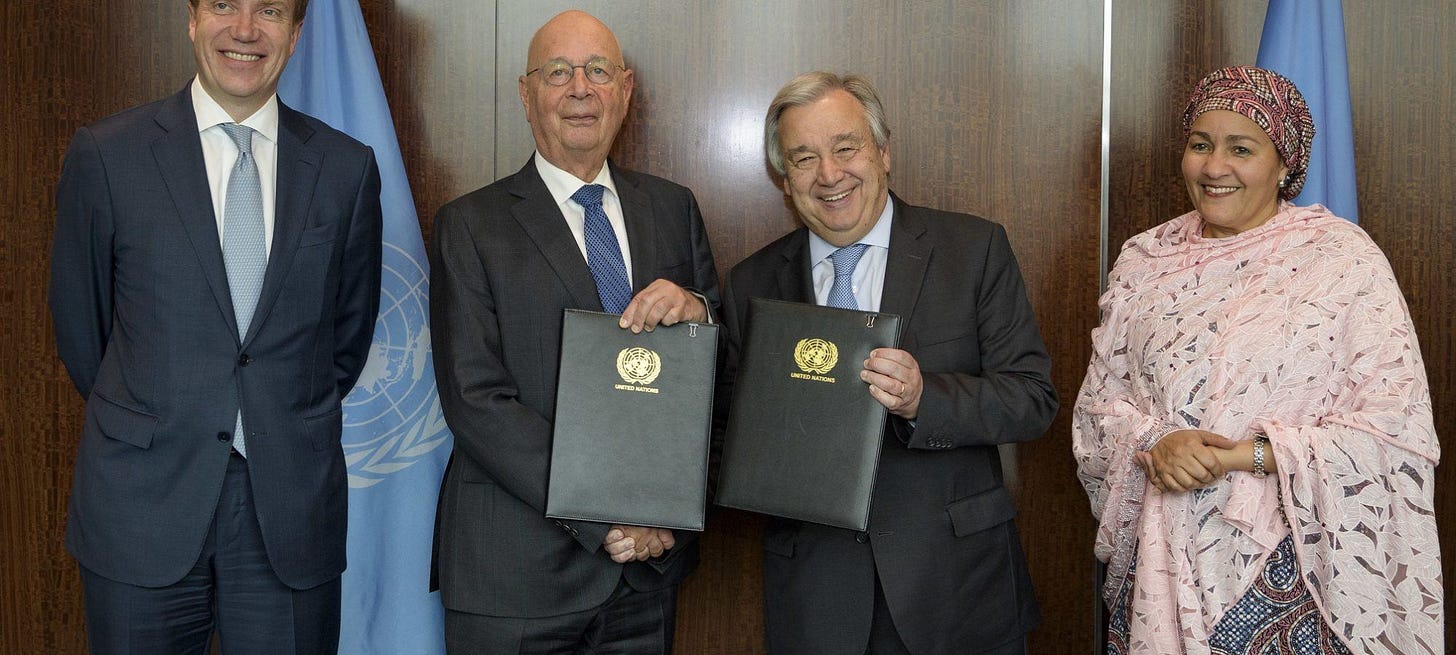






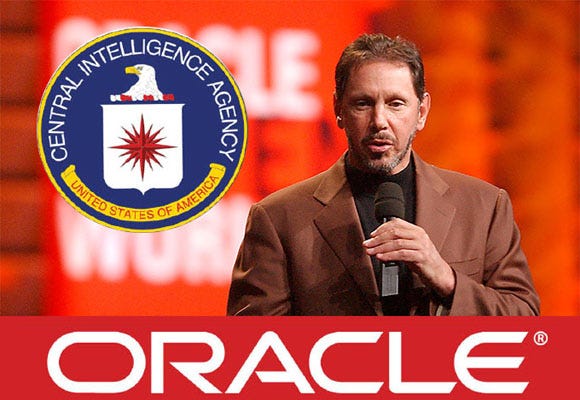


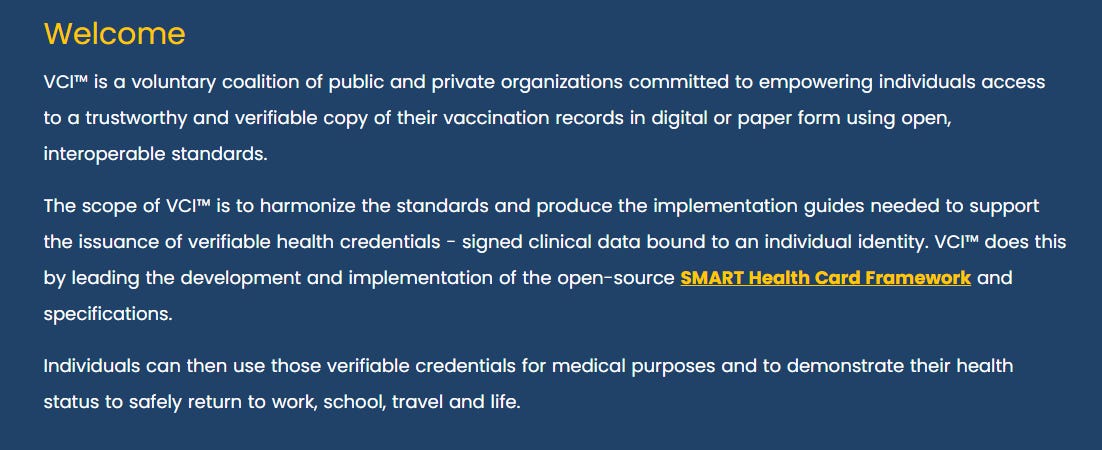










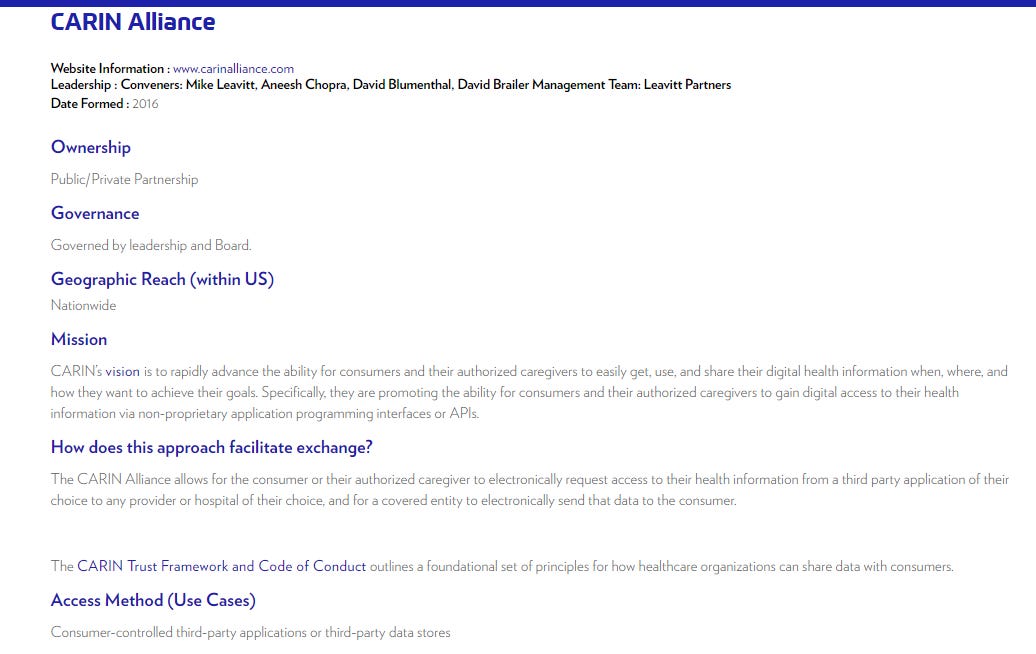





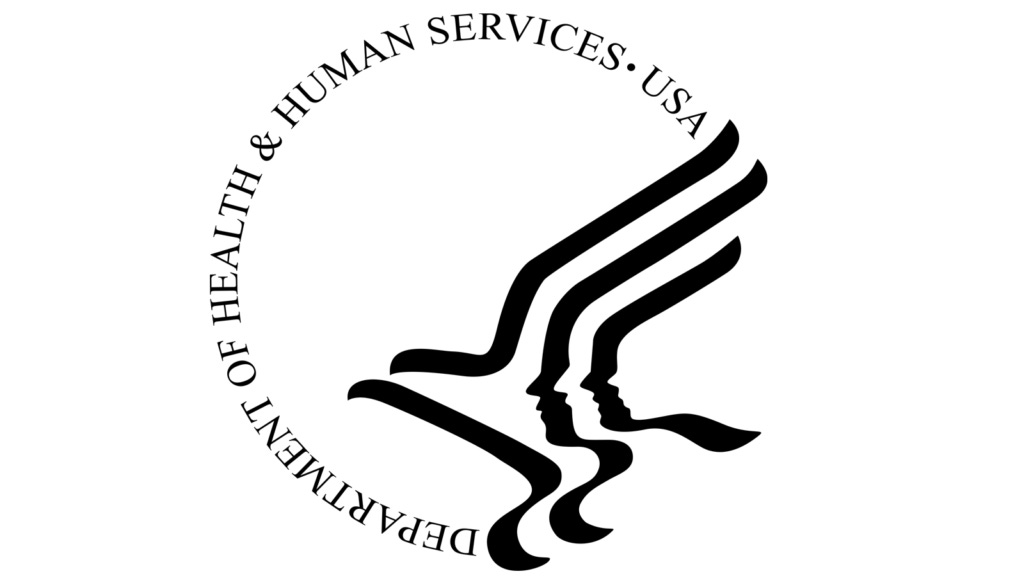

A national state of emergency usually suspends all "laws" and "rights," which happened during the plandemic. Once the line is crossed, the alphabet-soup agencies, the government, and their handlers never step down. Sometimes their practices become "legalized" retroactively even decades later, when the practice cannot be denied any longer.